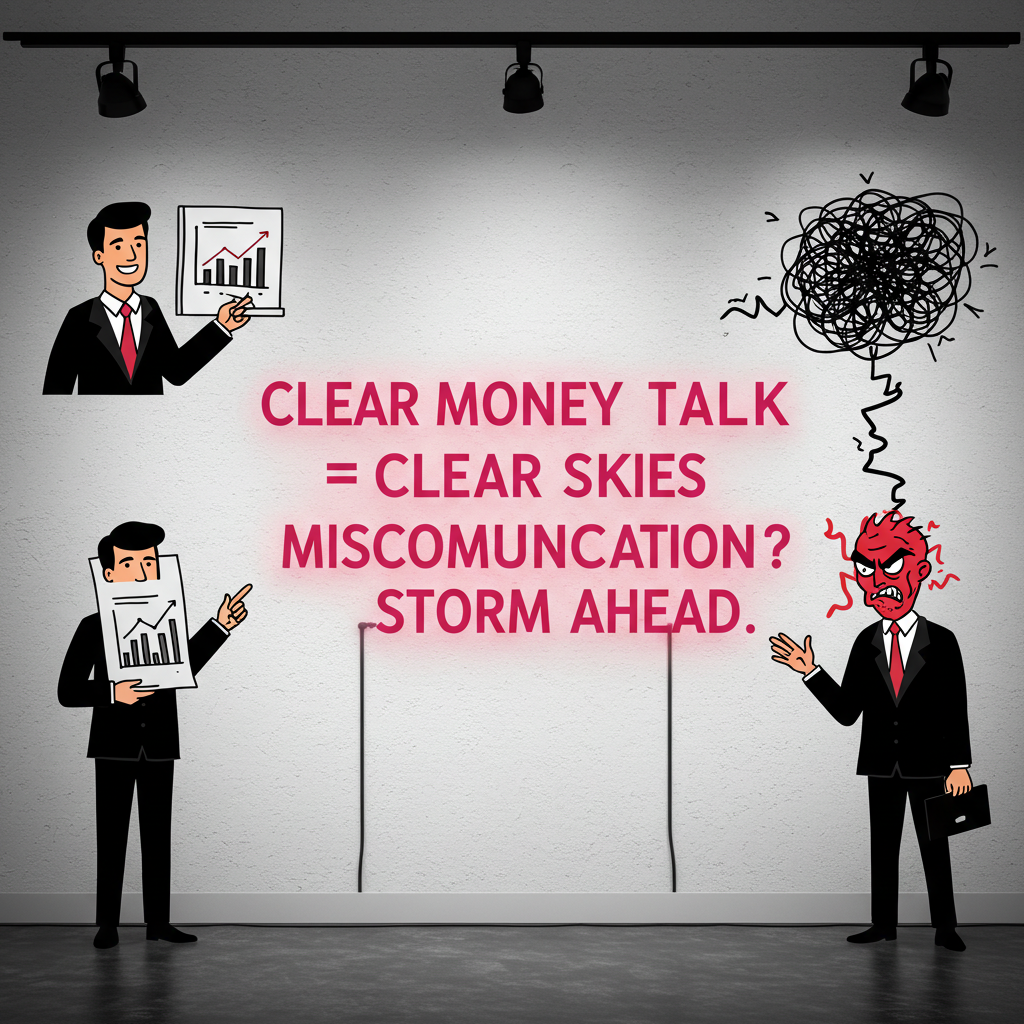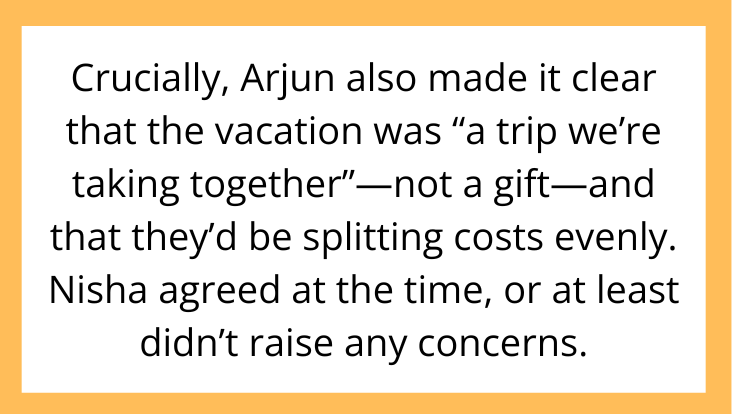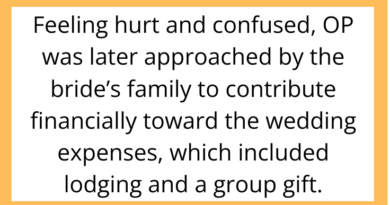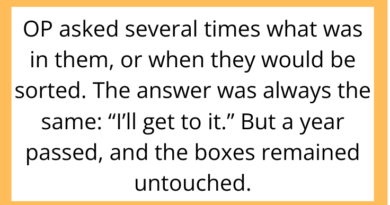AITAH for Not Paying for My Girlfriend’s Portion of the Vacation I Planned?
Vacations are meant to be a break from stress—not the cause of it. But when expectations around money and responsibility collide, even paradise can turn into a battlefield. In this AITAH-inspired scenario, a boyfriend who planned and budgeted for a getaway finds himself caught in a financial and emotional bind when his girlfriend shows up expecting everything to be covered.
Let’s unpack the situation that’s dividing opinions online.
The Setup: A Well-Planned Getaway… or So He Thought

A 27-year-old man—let’s call him Arjun—posted his story to the r/AITAH subreddit. He’d been dating his girlfriend, Nisha, 25, for about 10 months. To celebrate their anniversary, Arjun planned a five-day trip to Goa. He chose the destination, booked flights and an Airbnb, and invited Nisha, letting her know all the details well in advance.
Crucially, Arjun also made it clear that the vacation was “a trip we’re taking together”—not a gift—and that they’d be splitting costs evenly. Nisha agreed at the time, or at least didn’t raise any concerns.
But once they landed, things took a turn.
The Conflict: “You’re the Man—Shouldn’t You Be Paying?”

According to Arjun’s post, the problems began almost immediately after check-in. Nisha assumed he would cover the Airbnb, meals, excursions, and even her shopping.
When Arjun reminded her that they had agreed to split the cost, Nisha pushed back.
“You invited me,” she said. “If you plan a trip, you pay. That’s how it works. Plus, you earn more than I do.”
Arjun, confused and frustrated, stuck to the original agreement. He paid for his portion and expected her to handle hers. Nisha, in response, became cold and distant for the rest of the trip. Now back home, she’s barely speaking to him—and told their mutual friends that Arjun “made her feel like a burden.”
Arjun turned to Reddit to ask: AITAH for not paying for my girlfriend’s share of the vacation I planned?
The Breakdown: Fairness vs. Gender Expectations

The Case for Arjun: Honesty, Transparency, and Shared Responsibility
Arjun communicated everything upfront: location, logistics, and financial expectations. There was no last-minute surprise, no bait-and-switch.
In his view, the trip was a shared experience, not a romantic gesture he was “gifting” her. They’re a couple, not a benefactor and recipient.
Reddit commenters pointed out that mutual respect includes financial clarity. “You’re not her ATM,” one user wrote. “She agreed to the split. Backtracking later is manipulative.”
Some even speculated that Nisha never intended to pay at all.
The Case for Nisha: Cultural and Social Expectations
On the other hand, some sympathized with Nisha’s point of view. In many cultures—and among some individuals—the idea that “the man pays” still lingers, especially for romantic gestures like trips or dates.
It’s possible she viewed the trip as a celebration he was gifting her, not something transactional. Add in the income gap, and the power dynamic becomes more complicated.
Still, even these more sympathetic voices admitted that clear agreements should be honored, especially when made ahead of time.
The Deeper Issue: Misaligned Expectations

This AITAH story isn’t just about money. It’s about how people view relationships, roles, and fairness.
Arjun and Nisha may simply have different love languages and beliefs about how expenses should be handled. What’s worrying is that these beliefs were never fully communicated—or worse, were agreed upon and then disregarded mid-trip.
What Reddit Decided
The verdict was clear: Not the AITAH.
Top commenters emphasized:
-
Setting expectations early matters.
-
Agreeing to something and then changing the rules is unfair.
-
Everyone has a right to manage their finances in a way that respects their budget and boundaries.
A few pointed out that this situation might be a red flag for deeper incompatibilities in the relationship.
How This Could Have Been Handled Better

For Arjun:
-
Confirm the agreement again closer to the trip date to avoid assumptions.
-
Clarify the difference between “inviting” someone and “treating” them.
For Nisha:
-
Speak up beforehand if financial expectations don’t feel comfortable or fair.
-
Avoid guilt-tripping or emotional manipulation when caught off-guard by finances.
Key Takeaway: Communication Isn’t Just Romantic—It’s Essential

Whether you believe Arjun or Nisha was in the right, one thing is clear: clear, honest conversations about money are essential in any relationship. Love may be priceless, but vacations—and misunderstandings—definitely come with a cost.



